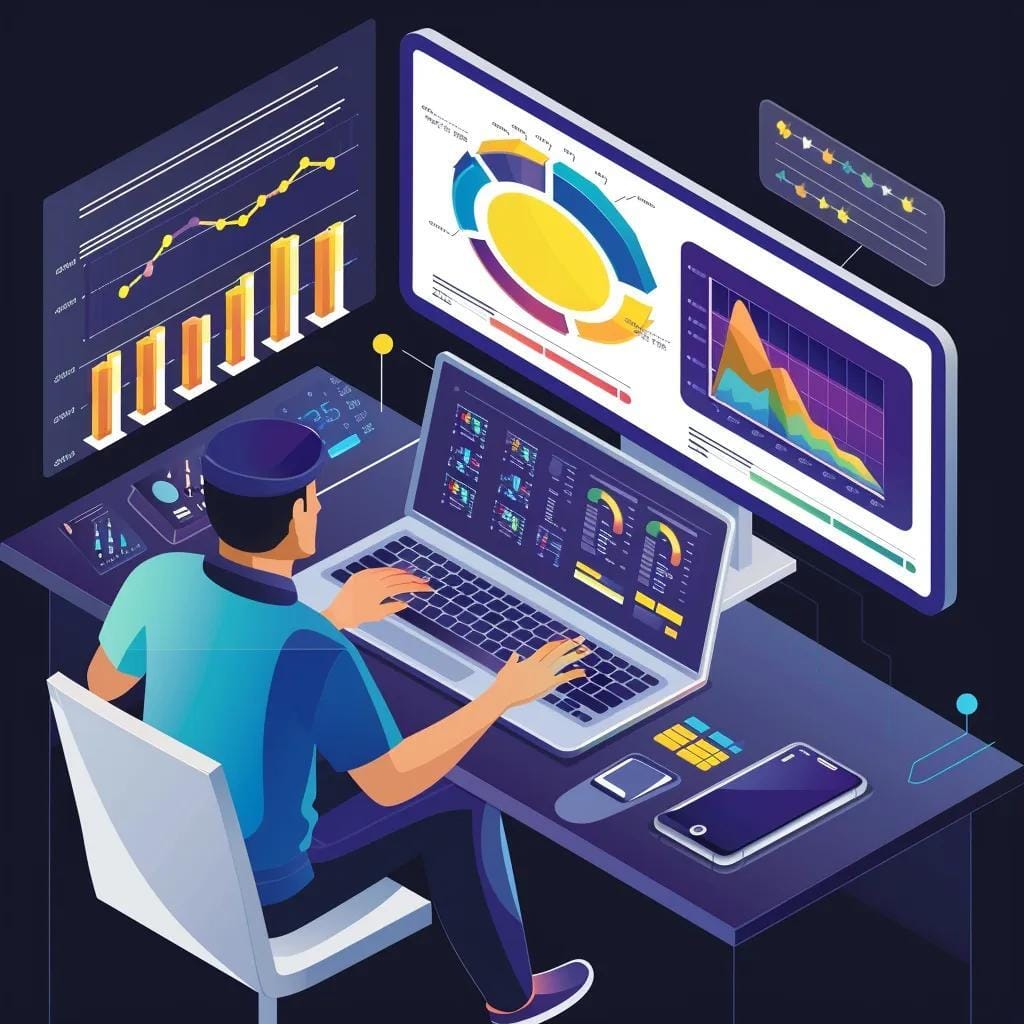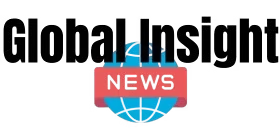Human resources professionals stand at the brink of a seismic shift: by 2025, half of all employees will require new skills to stay productive, and HR teams must lead this transformation. In this article, you will discover (1) how digital transformation redefines HR, (2) the ten critical skills to master, (3) strategies for upskilling, (4) emerging workforce trends, (5) the synergy of data analytics and AI, (6) best practices for change management, (7) fostering diversity and emotional intelligence, and (8) building adaptability for future challenges.
How Is Digital Transformation Shaping the Future of HR?
Digital transformation in HR means leveraging cloud platforms, mobile tools, and real-time data to automate processes, enhance engagement, and deliver strategic insights. This shift replaces manual tasks with intelligent workflows, driving faster recruitment, personalized learning, and proactive talent management.
What Role Will Artificial Intelligence Play in HR by 2025?
Artificial intelligence enables predictive talent analytics, automates candidate screening, and powers chatbots for employee queries. By analyzing resume patterns and performance data, AI boosts hiring accuracy and reduces time-to-fill by streamlining decision-making and freeing HR professionals for strategic work.
The Impact of AI on HR
Artificial intelligence is transforming HR by automating tasks, improving recruitment, and providing data-driven insights. AI-powered tools can streamline processes, enhance decision-making, and free up HR professionals for strategic work, leading to increased efficiency and better talent management.
Bersin, J., Deloitte (2023)
This research supports the article’s claims about AI’s role in reshaping HR practices and the need for HR professionals to adapt to these changes.
How Are HR Professionals Adapting to Automation and AI Tools?
HR teams integrate robotic process automation for payroll, benefits administration, and compliance tracking. They retrain on AI platforms, collaborate with IT to configure bots, and focus on exceptions while machines handle routine tasks—turning HR into a high-value advisory function.
Why Is Data Analytics Essential for Strategic HR Decisions?

Data analytics provides visibility into turnover drivers, engagement levels, and skills gaps. By linking workforce metrics to business outcomes, HR professionals craft targeted retention programs, forecast talent needs, and measure the ROI of learning interventions, cementing their role as strategic partners.
What Are the Top 10 Skills HR Professionals Must Master by 2025?
HR professionals must cultivate a blend of technical, strategic, and interpersonal abilities to navigate disruption. The following table highlights the first five skills with their core capability and business impact:
| Skill | Core Capability | Business Outcome |
|---|---|---|
| Data Analytics | Interpreting workforce metrics | Enables proactive talent planning |
| AI Literacy | Operating intelligent automation | Streamlines recruitment and onboarding |
| Strategic Workforce Planning | Forecasting future talent requirements | Aligns workforce to strategic objectives |
| Employee Experience Design | Crafting engaging employee journeys | Boosts retention and productivity |
| Change Management | Leading organizational transitions | Minimizes resistance and accelerates adoption |
Employee engagement in digital tools, for instance, ties directly to predictive analytics for retention. Next, consider the remaining five skills:
- Diversity and Inclusion—Embedding equity in policies and culture to drive innovation.
- Emotional Intelligence – Reading and responding to employee needs with empathy.
- Adaptability and Resilience – Pivoting strategies amid uncertainty and rapid change.
- HR Technology Acumen – Evaluating and implementing emerging platforms for talent management.
- Ethical AI Considerations—Ensuring fairness, transparency, and data privacy in automated decisions.
Together, these ten skills form a comprehensive competency framework that positions HR as a catalyst for organizational agility and growth.
Why Is Data Analytics a Critical Skill for HR Professionals?
Data analytics enables HR professionals to transform raw workforce data into actionable strategies. By applying predictive models to turnover rates and performance indicators, HR teams can preempt talent shortages and optimize engagement initiatives, directly impacting business performance.
The Importance of Data Analytics in HR
Data analytics enables HR professionals to transform raw workforce data into actionable strategies, such as predicting turnover rates and optimizing engagement initiatives. This data-driven approach directly impacts business performance by helping HR teams make informed decisions.
CIPD, People Analytics (2023)
This citation supports the article’s assertion that data analytics is a critical skill for HR professionals, enabling them to make strategic decisions.
How Does AI Literacy Enhance HR Effectiveness?
AI literacy empowers HR practitioners to configure machine-learning tools that automate resume screening, identify high-potential employees, and tailor learning recommendations. Mastery of algorithms enhances decision speed, eliminates bias, and builds more inclusive hiring processes.
What Makes Strategic Workforce Planning Vital for Future HR?
Strategic workforce planning integrates business forecasts with talent supply analyses, ensuring organizations have the right skills at the right time. This competency reduces costly understaffing or overstaffing, aligns training budgets with future needs, and supports long-term growth.
Strategic Workforce Planning and Business Outcomes
Strategic workforce planning is essential for aligning talent with business goals, reducing costs, and supporting long-term growth. By forecasting future talent needs and linking workforce metrics to business outcomes, HR can make informed decisions that drive organizational success.
Society for Human Resource Management (SHRM), Workforce Planning (2024)
This citation reinforces the article’s emphasis on the importance of strategic workforce planning as a critical skill for HR professionals.
How Can HR Improve Employee Experience Through Design?
Employee experience design applies human-centered methods—such as journey mapping and feedback loops—to create intuitive onboarding, career pathways, and wellness programs. Personalized experiences boost morale, foster loyalty, and translate into measurable productivity gains.
Why Is Change Management a Key Competency in HR?
Change management in HR means guiding individuals through transitions by communicating vision, training stakeholders, and monitoring adoption metrics. Effective change leaders reduce resistance, accelerate ROI on technology rollouts, and sustain cultural transformations.
How Do Diversity and Inclusion Shape Modern HR Practices?
Embedding diversity and inclusion (D&I) involves auditing recruitment channels, training leaders on unconscious bias, and establishing inclusive policies. D&I drives creativity, improves problem-solving, and strengthens employer brand in competitive talent markets.
What ‘s the Importance of Emotional Intelligence in HR Roles?

Emotional intelligence (EI) enables HR professionals to navigate conflicts, mentor managers, and support employee well-being. High EI fosters trust, reduces attrition through empathetic leadership, and enhances collaboration across functions.
How Do Adaptability and Resilience Benefit HR Professionals?
Adaptability and resilience help HR practitioners respond to sudden shifts—such as remote work mandates or reorganization—by pivoting strategies, maintaining team morale, and preserving service continuity under pressure.
Why Is HR Technology Acumen Necessary for Future Success?
HR technology acumen covers evaluating platforms—from applicant tracking systems to learning management tools—and integrating them into existing ecosystems. Skilled evaluators ensure seamless data flows, user adoption, and measurable efficiency improvements.
What Ethical Considerations Should HR Professionals Have About AI?
HR professionals must address ethical AI by validating data sources, mitigating algorithmic bias, and safeguarding employee privacy. Transparency in automated decisions builds trust and ensures compliance with evolving regulations.
How Can HR Professionals Develop and Enhance These Future-Ready Skills?
HR teams achieve continuous growth by adopting structured learning and mindset practices. Effective strategies include:
- Micro-learning and Workshops – Deliver targeted modules on analytics, AI, and change management.
- Cross-Functional Projects—Partner with IT, finance, and operations to apply new skills in real scenarios.
- Mentorship Circles—Establish peer coaching for leadership, EI, and D&I best practices.
Building on formal education, certifications like SHRM-CP, SHRM-SCP, and HRCI’s PHR and SPHR validate expertise and signal commitment to evolving standards. Cultivating a growth mindset through reflective journaling and regular feedback ensures HR professionals embrace experimentation and continuous improvement.
What Are the Emerging Trends Impacting HR Skills in 2025?
Four major trends are reshaping HR skill requirements:
- Future of Work Models – Hybrid and gig workforce structures demand flexible policies and digital collaboration skills.
- Talent Forecasting – Advanced predictive tools integrate economic indicators to anticipate skill shortages.
- Employee Experience Platforms—AI-driven engagement apps collect sentiment data for real-time intervention.
- Ethical Governance—Data privacy and AI ethics become board-level priorities, requiring HR oversight.
These trends reinforce the need for strategic planning, technology fluency, and ethical leadership to maintain a competitive edge in talent management.
How Do Data Analytics and AI Interconnect to Transform HR Practices?
Combining analytics and AI creates a feedback loop where data insights inform automation, and AI-driven actions generate new data for analysis.
In What Ways Does Data Analytics Enable Strategic Workforce Planning?
Data analytics aggregates historical hiring, performance, and engagement metrics to forecast headcount requirements. By modeling growth scenarios, HR teams align recruitment pipelines with anticipated business expansions.
How Does AI Automation Complement HR Data-Driven Insights?
AI bots execute routine tasks—like interview scheduling and benefit enrollments—while analytics dashboards track completion rates and flag exceptions. This partnership amplifies efficiency and ensures decision-makers focus on high-impact initiatives.
What Are the Best Practices for Implementing Change Management in HR?
Effective change management in HR hinges on clear vision, stakeholder engagement, and measured reinforcement.
How Can HR Lead Organizational Change Effectively?
HR leads change by defining objectives, securing executive sponsorship, and communicating benefits through multi-channel campaigns. Training supervisors as change champions fosters peer-to-peer advocacy and accelerates adoption.
What Techniques Help Manage Employee Resistance During Change?
Techniques such as listening sessions, transparent feedback loops, and quick-win pilots address concerns early. By celebrating small successes and sharing progress metrics, HR builds momentum and trust in the transformation journey.
How Can HR Professionals Foster Diversity, Inclusion, and Emotional Intelligence?
Integrating interpersonal skills with policy frameworks creates a resilient, innovative culture.
Why Are Diversity and Inclusion Essential for Future HR Success?
Diversity and inclusion bring varied perspectives that fuel creativity, improve decision-making, and strengthen organizational reputation. Inclusive teams outperform homogenous groups by tapping into a broader talent pool and fostering psychological safety.
How Does Emotional Intelligence Improve HR Leadership and Employee Relations?
Emotional intelligence allows HR leaders to interpret team dynamics, resolve conflicts, and tailor support to individual needs. Empathetic communication enhances trust and loyalty, driving lower turnover and higher engagement.
What Role Does Adaptability Play in Preparing HR for Future Challenges?
HR adaptability ensures readiness for continuous disruption by embedding agile practices and resilient mindsets.
How Can HR Professionals Build Resilience in a Rapidly Changing Environment?
Building resilience involves scenario planning, stress-management workshops, and creating flexible policies. Encouraging a culture of experimentation and learning from failure helps HR teams iterate quickly when priorities shift.
What Are Examples of HR Adaptability in Practice?
Organizations demonstrate HR adaptability by swiftly redesigning performance reviews for remote teams or launching digital well-being platforms during crises. These initiatives maintain continuity and signal responsiveness to evolving employee needs.

